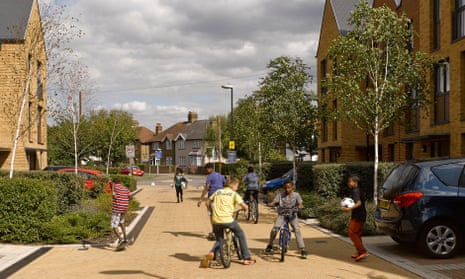As the first universal credit (UC) payments start to come through for the tens of thousands of families who have had to claim it because of Covid-19, they will discover that there is no support in UC for their third or subsequent child if that child was born after April 2017, when the “two-child limit” policy came into effect. Only that child’s older siblings will be eligible for child allowances in UC to meet their needs.
The government’s rationale for the policy is that parents claiming UC or tax credits should face the same choices about the number of children they can afford as those supporting themselves solely through work. But the current national crisis has exposed that argument as untenable. Even in normal times, no parent can be sure that their financial security will withstand unpredictable events such as illness, bereavement or redundancy. Certainly no parent could have had foresight of Covid-19, and so planned their family size accordingly.
Yet families newly affected by the two-child limit are being left with too little to meet their needs in circumstances entirely beyond their control. That is not right. The policy should be lifted before struggle turns to real hardship for the many affected families.
Similarly, the benefit cap – which limits the total amount of benefits per household – can have no place during the current crisis. Some parents are newly subject to the cap because their working hours have been cut, so they can no longer reach the earnings threshold at which they are exempted from the cap. Others won’t benefit from the government’s welcome increases in universal credit, tax credits and the local housing allowance because these increases mean they are hit by the cap. In neither case can most parents simply find a job (if one was available) or work more to escape being capped, given school closures, reduced childcare provision and social distancing.
The pandemic has exposed the benefit cap and two-child limit as inherently arbitrary, when what is needed – during the pandemic and beyond – is a safety net that is strong, compassionate and just. We urge ministers to lift the policies now.
Alison Garnham Chief executive, Child Poverty Action Group
Rt Rev Paul Butler Bishop of Durham
Danny Sriskandarajah Chief executive, Oxfam GB
Marie van der Zyl President, Board of Deputies of British Jews
Anna Feuchtwang Chair, End Child Poverty Coalition
Harun Khan Secretary general, Muslim Council of Britain
Imran Hussain Director of policy and campaigns, Action for Children
Kate Bell Head of rights, international, social and economics, the TUC
Tim Roache General secretary, GMB
Sandra Horley Chief executive, Refuge
Dominic Williams CEO, Frontline Debt Advice
Nicki Norman Acting chief executive, Women’s Aid Federation of England
Edwin Shuker Vice president, Board of Deputies of British Jews
Paddy Lillis General secretary, Usdaw
Mary-Ann Stephenson Director, Women’s Budget Group
Ann Furedi Chief executive, British Pregnancy Advisory Service
Joseph Howes Chief executive officer, Buttle UK
Laurence Guinness Chief executive, The Childhood Trust
Paula Stringer UK chief executive, Christians Against Poverty (CAP)
Thomas Lawson CEO, Turn2us
Bill Scott Chair, Poverty & Inequality Commission for Scotland
Graham Whitham Director, Greater Manchester Poverty Action
Sabine Goodwin Coordinator, Independent Food Aid Network
Martin Charlesworth Chief executive, Jubilee+
Jane Malcolm CEO, Level Trust
Prof Clive Marsh Vice-president, the Methodist Conference
Rev Dr Barbara Glasson President, the Methodist Conference
Dr Nick Owen Chief executive officer, The Mighty Creatives
Dr Mary Bousted and Kevin Courtney Joint general secretaries, the National Education Union
Craig Samuel Scotland representative, NAWRA
Jane Streather Chair, North East Child Poverty Commission
Satwat Rehman CEO, One Parent Families Scotland
Maurice Wren Chief executive, the Refugee Council
Very Rev Dr Susan Brown Convener of the Faith Impact Forum, the Church of Scotland
Tony Edwards Acting CEO, Church Urban Fund
Dr Nicola Sharp-Jeffs CEO, Surviving Economic Abuse (SEA)
Derek Estill Moderator of the General Assembly, the United Reformed Church
Rev Nigel Uden Moderator of the General Assembly, the United Reformed Church
Ann Furedi Chief executive, British Pregnancy Advisory Service
Jane van Zyl Chief executive, Working Families
Irene Audain Chief executive, Scottish Out of School Care Network
Dr Wanda Wyporska Executive director, The Equality Trust
Raji Hunjan Chief executive, Z2K
Ruth Erblich Welfare Benefits Advice Office, Agudas Israel Community Service
Rev David Mayne Moderator, the Baptist Union Council
Shaben Begum Director, Scottish Independent Advocacy Alliance
Thomas Croft and Diana Skelton ATD Fourth World
Dr C Quinn Rape Crisis England & Wales
